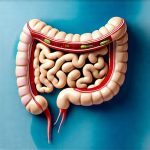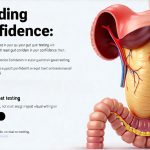The decision to come off psychiatric medication is deeply personal and often complex, representing a significant step toward reclaiming agency over one’s mental well-being. It’s rarely a simple process; rather it’s typically a carefully planned transition requiring close collaboration with a healthcare professional. While medications can be incredibly helpful in managing symptoms, many individuals seek to explore life beyond them, aiming for a more holistic approach to mental health that prioritizes lifestyle factors and natural support systems. This journey necessitates a heightened awareness of one’s internal state, and crucially, an understanding of the often-overlooked connection between mental health and gut health. The gut microbiome – the trillions of bacteria residing in our digestive system – is now recognized as playing a significant role not only in physical health but also in brain function and emotional regulation.
Successfully navigating this transition requires more than just reducing dosage; it demands active monitoring, self-awareness, and a proactive approach to supporting overall well-being. Many individuals experience withdrawal symptoms when coming off medication, and these can sometimes mimic or exacerbate existing mental health challenges, making it difficult to discern what’s “withdrawal” versus a return of underlying conditions. This is where consistent tracking symptoms becomes invaluable—not as a way to self-diagnose or panic, but as a means to gain a deeper understanding of how the body and mind are responding to change. Focusing on observable data provides objective information, helping both individuals and their healthcare providers make informed decisions about tapering schedules and supportive interventions.
The Gut-Brain Connection & Mental Health Transitions
The intimate relationship between the gut and brain is bidirectional – meaning they constantly communicate with each other. This communication happens through several pathways: the vagus nerve (a major cranial nerve connecting the gut to the brain), the immune system, and the production of neurotransmitters. In fact, a significant amount of serotonin—often dubbed the “happy hormone”—is produced in the gut. An imbalance in the gut microbiome (dysbiosis) can disrupt these pathways, potentially impacting mood, anxiety levels, and cognitive function. When coming off medication, which often alters neurochemistry, the gut’s role in neurotransmitter production becomes even more crucial for maintaining emotional stability. Medications themselves can also significantly impact the gut microbiome; certain antidepressants, for example, have been shown to alter bacterial composition. Therefore, transitioning off these medications can create a ripple effect that further impacts gut health and necessitates focused attention.
This is why supporting gut health during this period isn’t just about digestive comfort – it’s about providing a foundation for emotional resilience. A healthy gut microbiome contributes to better neurotransmitter production, reduced inflammation (which has been linked to mental health disorders), and improved immune function. It’s important to understand that restoring gut health is not a quick fix; it requires consistent effort and lifestyle adjustments. This isn’t about replacing medication with probiotics – rather, it’s about creating a holistic approach where dietary changes, stress management techniques, and potentially targeted supplementation work in synergy to support overall well-being during a vulnerable transition period. Understanding how testing guides can personalize your plan is also key.
Furthermore, withdrawal symptoms can often manifest as digestive issues such as nausea, diarrhea, or constipation. These aren’t merely unpleasant side effects; they are indicators of the gut’s response to neurochemical changes and highlight the need for gentle, nourishing dietary choices. A diet lacking in fiber, prebiotics, and probiotics can exacerbate these symptoms and further disrupt the delicate balance within the gut microbiome, potentially creating a vicious cycle.
Tracking Methods for Gut Health & Mental Wellbeing
Tracking your experience during medication transition is essential, but it doesn’t have to be overwhelming. The key is to find methods that are sustainable and provide meaningful data without adding undue stress. Here’s how you can approach it:
- Daily Journaling: This is perhaps the most versatile method. Don’t just record symptoms; focus on specifics. Instead of “I feel anxious,” write “Anxiety peaked around 3 pm after a stressful work meeting, accompanied by heart palpitations and muscle tension.” Include details about your gut health: bloating, gas, bowel movements (frequency, consistency), and any digestive discomfort.
- Symptom Checklists: Create a checklist with common withdrawal symptoms (both mental and physical) and rate their severity on a scale of 1-10 each day. This provides a quick overview of trends over time. Include gut health specific items like “abdominal pain,” “bloating,” or “changes in bowel habits.”
- Food & Mood Diaries: Connect what you’re eating with how you’re feeling, both mentally and physically. Note any foods that seem to trigger symptoms or improve your overall state. This can help identify potential food sensitivities or intolerances.
Regularly reviewing these records with your healthcare provider is crucial. They can help interpret the data, adjust tapering schedules if necessary, and recommend appropriate supportive interventions. The goal isn’t to obsess over every detail but to gain a clearer understanding of your body’s responses and make informed decisions in collaboration with professionals. A complete gut health profile can be incredibly helpful here.
Dietary Adjustments for Gut Support During Transition
Diet plays a pivotal role in supporting gut health, especially during medication transitions. Focus on incorporating foods that nourish the microbiome and reduce inflammation:
- Fiber-Rich Foods: Fruits, vegetables, whole grains, and legumes provide prebiotics – food for beneficial bacteria. Gradually increase fiber intake to avoid digestive upset.
- Fermented Foods: Yogurt (with live cultures), kefir, sauerkraut, kimchi, and kombucha are excellent sources of probiotics – live microorganisms that can help diversify the gut microbiome.
- Healthy Fats: Omega-3 fatty acids found in fatty fish, flaxseeds, and walnuts have anti-inflammatory properties and support overall brain health.
- Limit Processed Foods, Sugar & Artificial Sweeteners: These can disrupt the gut microbiome and contribute to inflammation.
Beyond what you eat, how you eat matters too. Practice mindful eating – savor your food, chew thoroughly, and avoid distractions during meals. This promotes better digestion and nutrient absorption. Hydration is also key; water helps move things along in the digestive system. Consider experimenting with an elimination diet (under the guidance of a healthcare professional) to identify potential food sensitivities that may be exacerbating symptoms. It’s important to remember gut function and how it changes during this time.
Stress Management & Gut Health Interplay
Stress significantly impacts gut health, often leading to imbalances in the microbiome and increased intestinal permeability (“leaky gut”). During medication transitions, when individuals are already more vulnerable, stress management becomes even more critical:
- Mindfulness & Meditation: Regular practice can reduce cortisol levels (stress hormone) and promote relaxation.
- Yoga & Gentle Exercise: Physical activity releases endorphins (natural mood boosters) and improves gut motility. Avoid overexertion, which can increase stress on the body.
- Deep Breathing Exercises: Simple techniques like diaphragmatic breathing can calm the nervous system and reduce anxiety.
- Social Connection: Spending time with loved ones and engaging in meaningful activities provides emotional support and buffers against stress.
Recognizing your personal stress triggers and developing healthy coping mechanisms is vital. This could involve setting boundaries, learning to say no, or seeking therapy to address underlying issues contributing to stress. Remember that self-care isn’t selfish; it’s an essential component of a successful medication transition and long-term well-being. Prioritizing these strategies alongside dietary adjustments and consistent tracking can create a powerful foundation for navigating this challenging but ultimately empowering journey. Supporting gut health while managing food allergies is also vital to consider. And finally, remember how to maintain gut health even when life gets busy!


















